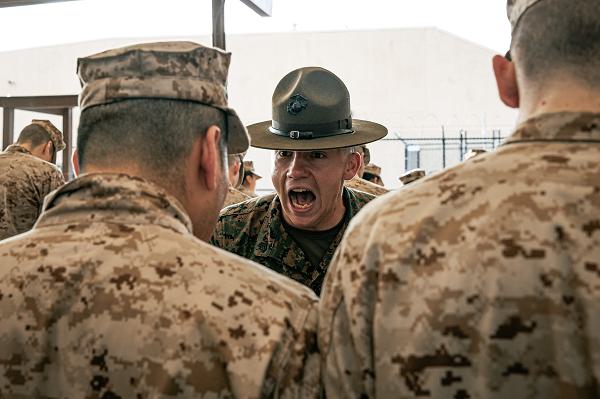
San Diego, California. (December 19, 2024): To many veterans, their basic training experience was the toughest on earth and many believe today’s standards are softer than those of previous generations. In this photo by Corporal Sarah M. Grawcock, Marine Corps Drill Instructor Sergeant Nicholas Marsh, with India Company, 3rd Recruit Training Battalion, instructs recruits before they are issued their rifles. Will these young troops experience a different type of Basic Training than their elders?
Absolutely. And for very good reasons.
First, the profile of Generation Z is quite different than previous generations. Born into the computer age, young folks today are better educated and more technically competent than any of their predecessors. Likewise, modern drill instructors have adapted their ways to reach this highly technical generation more effectively.
It is important to recognize that the drill sergeant is in a position of absolute power over recruits. They tell their charges when to eat, sleep, what to wear, and how to think. They have the power to reward compliant troops and punish offenders. They can even kick a malcontent out of the service. This kind of power doesn’t exist in the civilian world, but it essential to overcome years of bad habits to produce warriors in just a couple of months.
Another myth from the old days is that the military tries to make recruits fail Basic Training. Nothing could be further from the truth. The military spends millions yearly to recruit new troops and every branch of the armed forces wants to keep as many of them as possible. This is confirmed by the service’s attrition rate for Basic Trainees showing almost 90 percent of recruits complete boot camp.
One of the reasons for this high completion rate is that modern drill instructors aren’t allowed to physically harm or intimidate recruits and must instead focus on mentorship and providing physical and emotional guidance. Today’s outlook is that there is a time for discipline and a time for praise and that harsh treatment is neither necessary nor effective. No one likes to be shoved around and yelled at and the new philosophy requires instructors to treat recruits the way they would like to be treated.
This new form of “tough love,” without the screaming, still teaches recruits how to be a better person and an honorable member of society.


